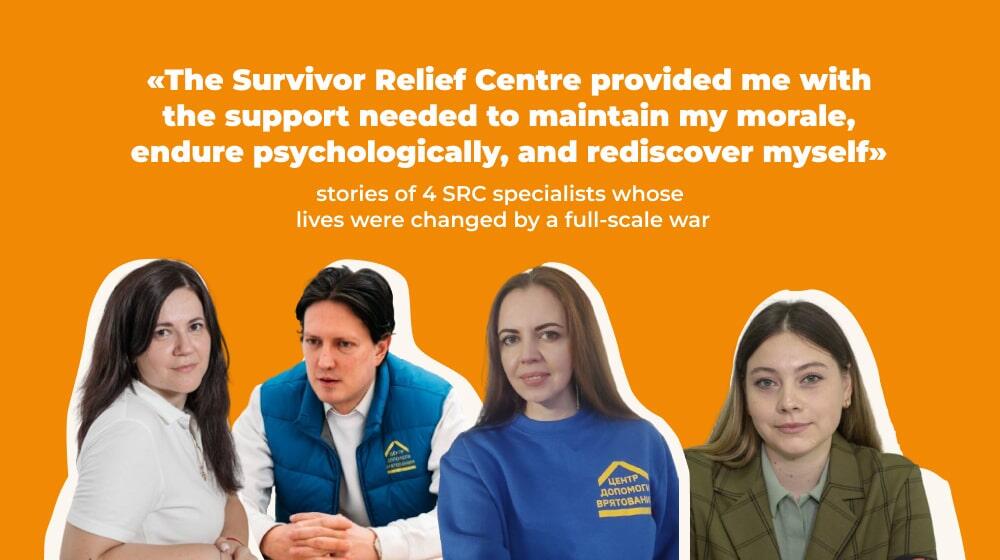Survivor Relief Centres (SRCs) were created to respond to the challenges of war. Here, everyone affected by Russia's war on Ukraine can receive social, psychological, legal and information support.
All workers of the Centres are highly qualified specialists. Before Russia's escalation of war against Ukraine, the lives of the specialists of the SRCs were completely different – some had their own businesses, some were abroad, some worked in a completely different field. However, 24 February 2022 changed their lives and united them with one goal: to help Ukrainians affected by the war.
Here are the stories of four specialists from the Rescue Centres and how the war affected them:
"I dream of receiving a call from my brother one day" – Olha Dovhaniuk, lawyer of the Chernivtsi SRC
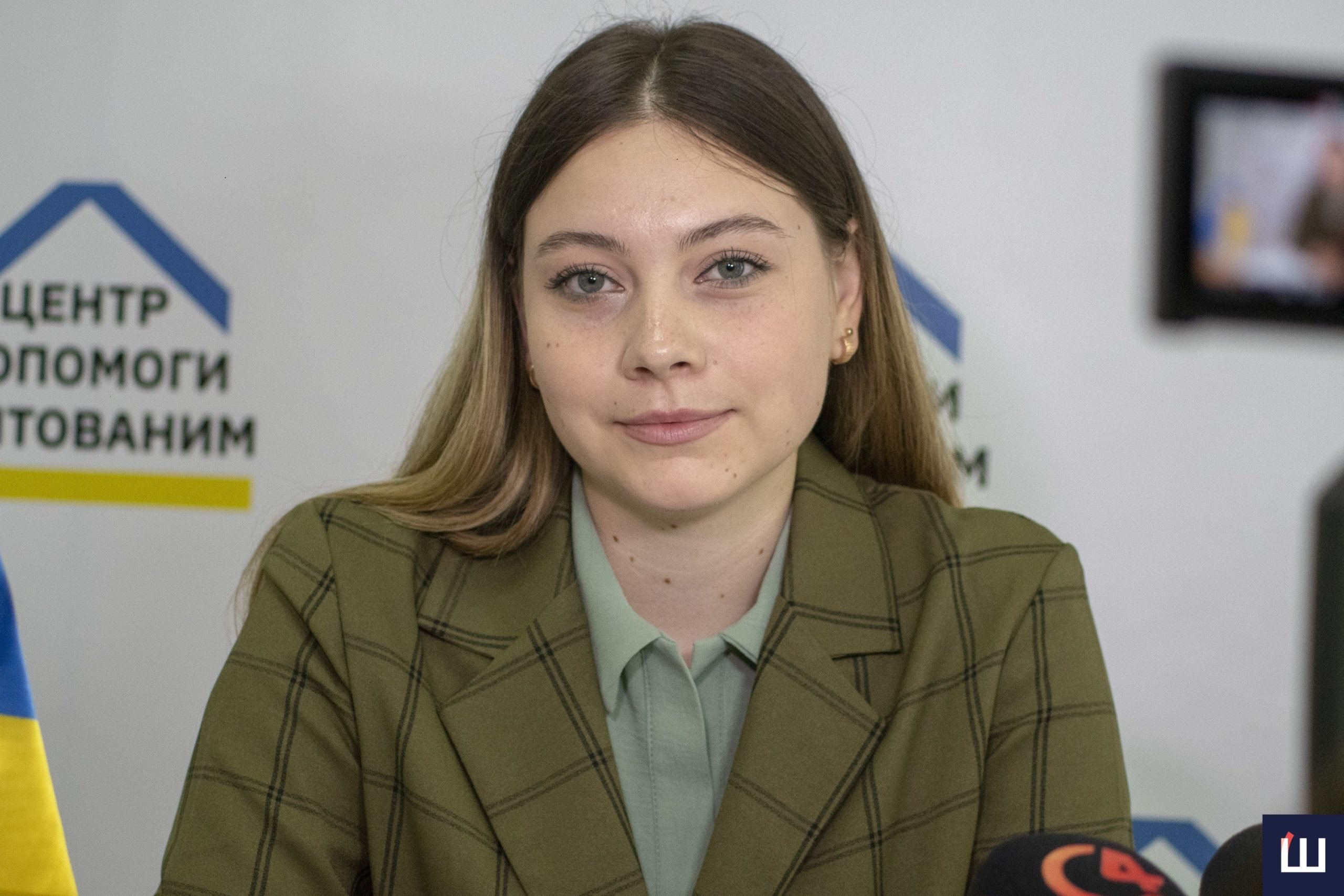
Russia's full-scale war against Ukraine has not only divided the life of 22-year-old Olha Dovhaniuk into before and after, but also made adjustments to the young girl's dreams and aspirations.
According to her, the feeling of shock and confusion from the news of simultaneous attacks by Russian troops on Ukrainian cities did not last long. Within a few hours, she was back at work at her educational institution, where she worked on inclusivity.
From the first hours of the invasion, Olha and her colleagues began preparing for the arrival of IDPs from the areas of active hostilities. As Olha recalls, active volunteer work helped to hold on. A few months later, her older brothers voluntarily joined the Armed Forces of Ukraine. At the end of December, their family received terrible news - one of Olha's brothers went missing during the defence of Bakhmut, Donetsk region.
"Then the horror of the first day of the war multiplied several times for me. That day became the longest in my life," she says. Despite her law degree, she had no idea what to do at first, she admits.
"But I had to hold on, because our mother, brother's wife and children were there. Despair was not an option, so we gathered our strength and started the fight that continues to this day," she says.
Due to the lack of established mechanisms and procedures for searching for missing persons in the region, the Dovhaniuk family had to deal with this issue on their own. Olha managed to unite around 150 people in a similar situation for a common goal.
This difficult personal experience has become a milestone in her life: since June, 2023, alongside the search for her brother, she has been working at the Chernivtsi Survivor Relief Centre and providing legal support to all those affected by the war, including families of missing persons and prisoners of war.
"I am always happy to hear that we have managed to find and return our prisoners, to see videos of our prisoners' exchanges and how they call their families. I dream that one day I will receive a phone call from my brother and hear his voice. In the meantime, I am fighting for him and providing support to others," she says.
"I perceive my work at the Survivor Relief Centre as a continuation of my service, as a way to be useful to people and my country" - Artem Chernov, a psychologist at the Poltava SRC
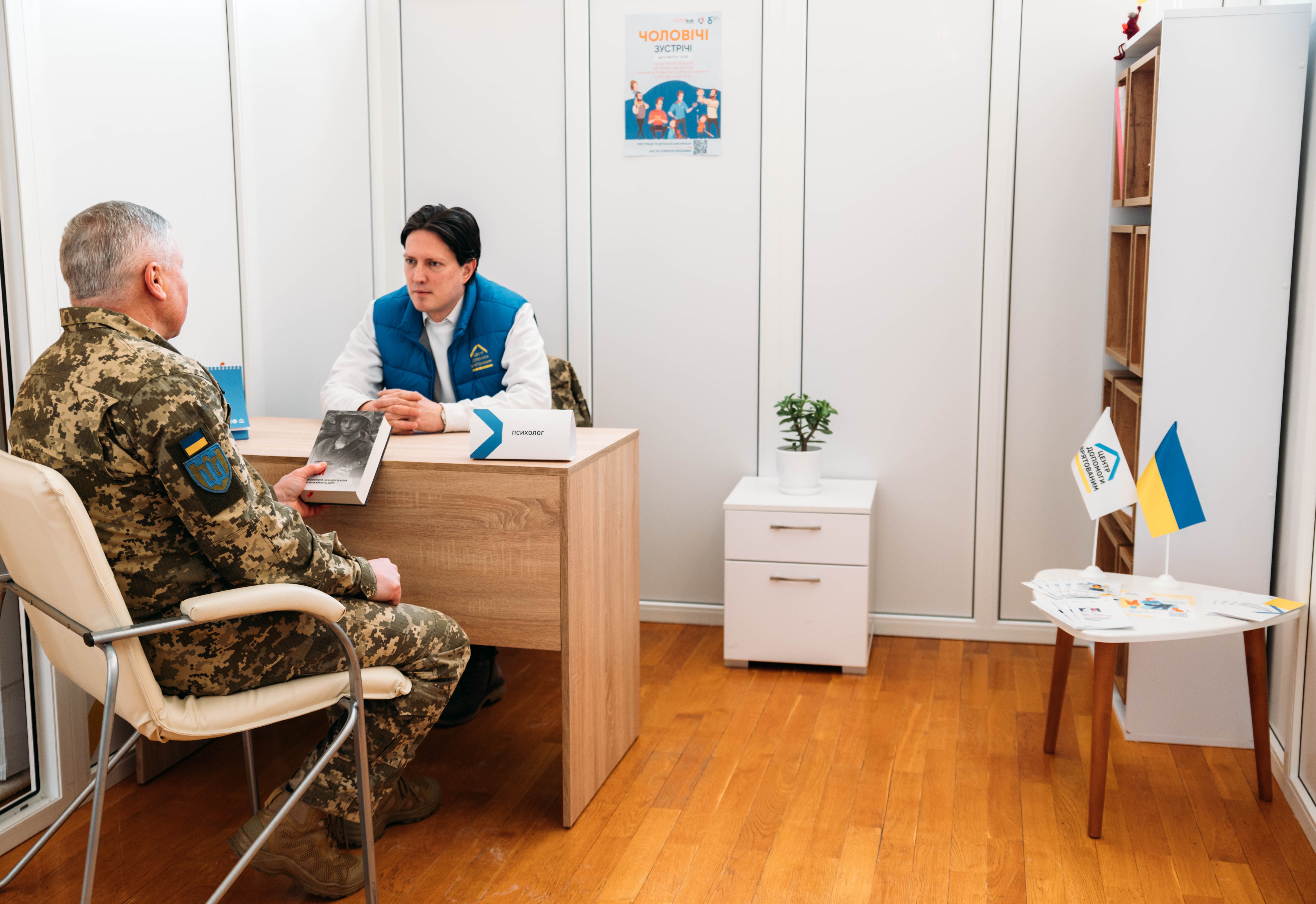
Before the start of Russia's full-scale war against Ukraine, 37-year-old Artem Chernov saw his future in Poland, where he had been living and working for the past two years. However, the Russian escalation of war changed everything. Artem's family did not give in to his persuasion to leave Ukraine, so it seemed impossible for him to stay abroad when they were in danger.
Returning to Ukraine in the first days of the full-scale war was not an easy task - the railway connection to his home was hampered by the war. Polish volunteers helped Artem get to the border, and then he and a small group of other Ukrainians crossed the checkpoint on foot.
"The Poles and Ukrainian border guards were surprised at our enthusiasm to go back when millions of people were fleeing the war. I had to convince them that I wanted to come back because I was not a conscientious objector and that my family and country needed me," Chernov recalls.
Upon arriving in his native Poltava, the man immediately went to the local territorial recruitment and social protection centre to register for military service. Given his specialised education, Artem was initially mobilised as a psychologist in a moral and psychological support group. However, later it turned out that the military conditions had affected Chernov's health, so he could not continue his service in the Armed Forces.
Artem did not hesitate to join the work of the Survivor Relief Centre in Poltava as a psychologist. For almost a year now, the man has been working with the Centre's clients, whose lives have been affected by Russia's war against Ukraine.
"This offer immediately seemed interesting and useful to me, because I have seen from my own experience what war does to people. I perceive my work at the CEC as a continuation of my service, as a way to be useful to people and the state. For me, this is loyalty to the oath to serve the people of Ukraine," Chernov emphasises.
"The Survivor Relief Centre provided me with the support needed to maintain my morale, endure psychologically, and rediscover myself" - Kateryna Syzonenko-Glazieva, coordinator of the Zaporizhzhia SRC
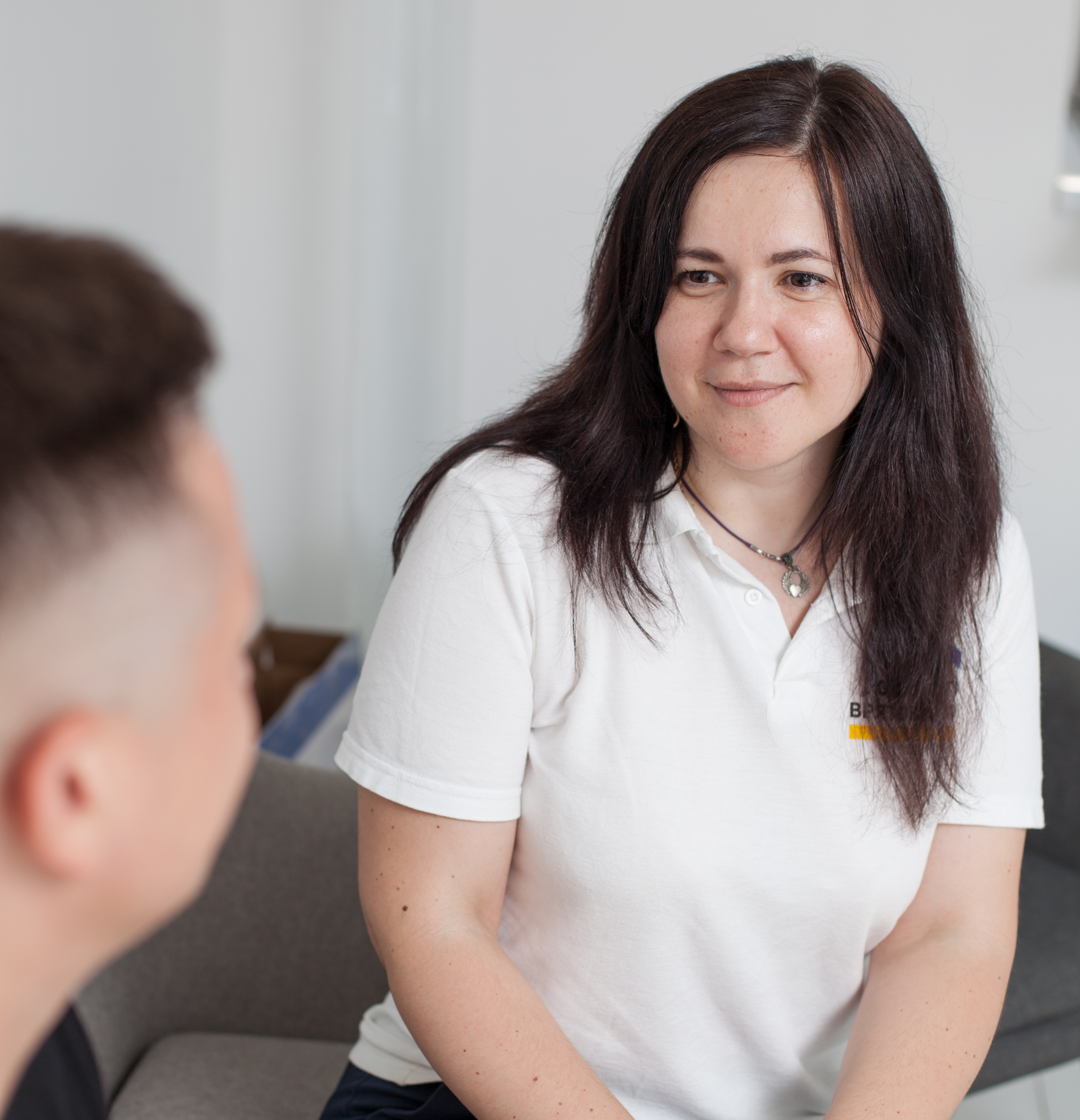
Two years ago, Kateryna Syzonenko-Glazieva, the current coordinator of the Survivor Relief Centre in Zaporizhzhia, could not have imagined that she would be forced to change her favourite job in agriculture for the social sector.
Growing up in a farmer's family in Huliaypole, Zaporizhzhia region, she knew the potential of Ukrainian land and the nuances of working with it from an early age, so when she grew up she had no doubt that she wanted to continue her father's business.
"From a young age, I was always in the field with him every weekend. Together we watched the wheat sprout, counted sunflower seeds and estimated the future harvest. I lived for this business, devoted 19 years to it and dreamed of scaling it up," says Kateryna.
However, Russia's full-scale invasion of Ukraine brought all her plans and aspirations to naught. Her native Huliaypole was in the midst of the fighting, and her family's businesses were under Russian occupation. According to Kateryna, the Russian military repeatedly contacted her and her father to persuade them to cooperate.
Already in early March, due to intense shelling, Huliaypole was left without electricity and water supply, and store shelves were empty. To help others survive, the family distributed flour supplies, which were quickly running out. Staying in the city was becoming increasingly dangerous and unbearable, and the announcement of civilian evacuation on 9 March was the final straw for them to decide it was time to flee. Kateryna still recalls the day she left her hometown with reluctance.
"After the evacuation was announced, my daughter and I had only half an hour to pack. The car with the words "CHILDREN" plastered all over it, tears and leaving are all my memories of that moment," she says.
Since August 2022, Syzonenko-Hlazieva has been living with her family in Zaporizhzhia, "to be closer to home". According to Kateryna, her main consolation has been her work as a coordinator of the SRC, which provides psychological, social and legal support to all those affected by Russia's war against Ukraine.
"The key to our Centre is humanity and empathy. Back in the day, the SRC provided me with the support needed to maintain my morale, endure psychologically, and rediscover myself. Now I help people I understand very well, because I lost my home and business. In fact, my whole world was destroyed. But I found my place and vocation. The main thing is a saved life," the specialist emphasises.
"The thought of who would help people stopped me from leaving Kharkiv" - Olena Kyrychuk, social worker at the Kharkiv Mobile SRC
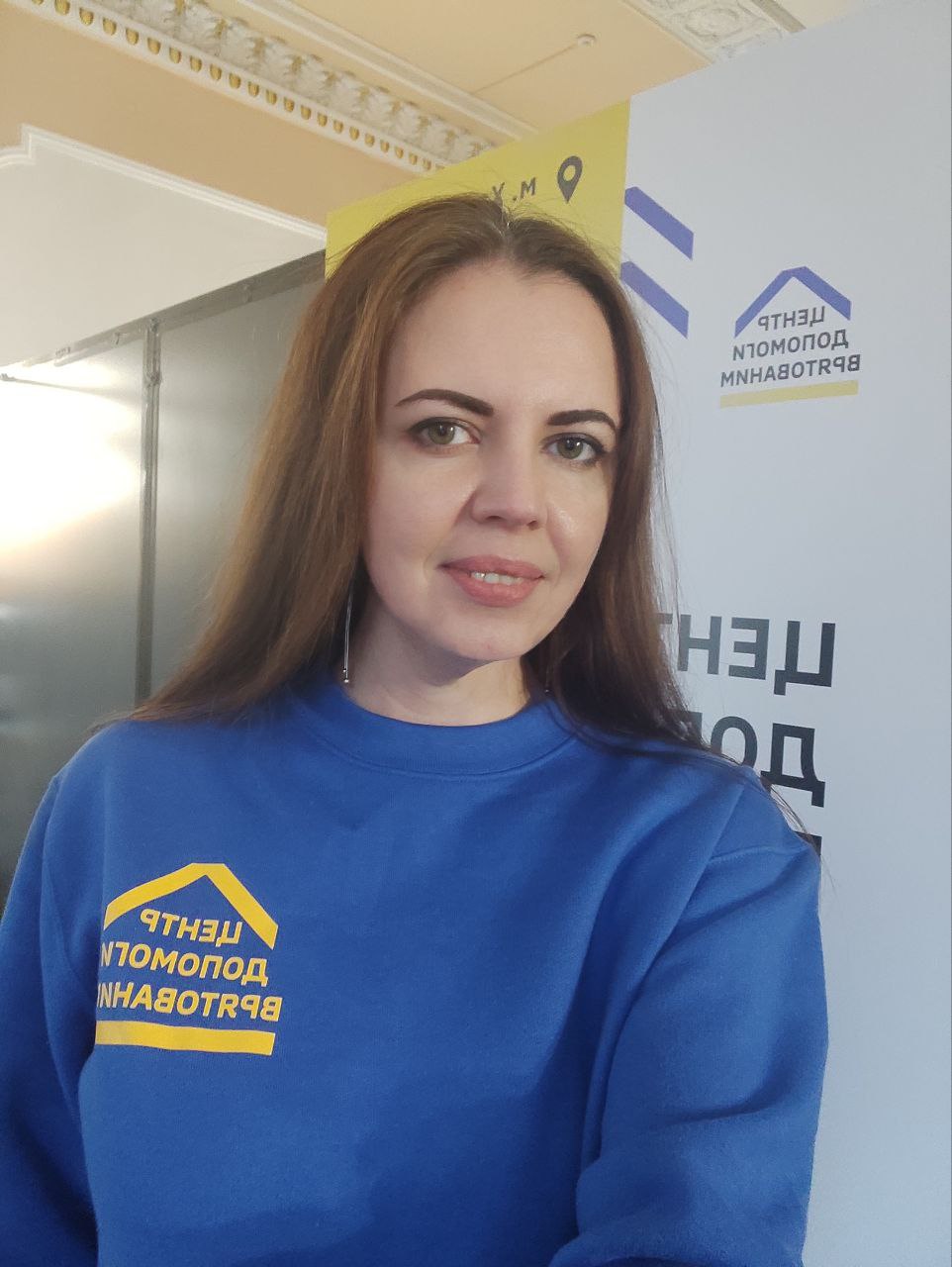
For more than 10 years, 41-year-old Olena Kyrychuk has been living in Kharkiv, where she moved from her native Crimea shortly before the annexation of the region by Russia.
Back then, the annexation of her home was difficult for her, as she still had family on the peninsula. However, the real shock for her was the beginning of Russia's full-scale war against Ukraine.Despite the fear of the unknown and numerous persuasions from her husband and family to leave Kharkiv, which came under fire from the very first minutes, she decided to stay in the city.
"I couldn't leave without my husband. I have a principle: if we are together, we will go all the way. Besides, I thought, if most people leave, then who will help those who cannot and stay," says Kyrychuk.
The area in which the woman's family lives is 5 km from the positions of Russian troops, so, as Olena says, "everything was flying at them". At the end of February, the shelling caused the first power outage in Kharkiv. With no electricity for two weeks at a time, a gas stove became their lifeline, says Olena. Due to the constant attacks by the Russian army and disruptions in communications, Kharkiv was becoming more and more deserted every day.
"Everything seemed grey. But I couldn't just sit back and do nothing, because I realised that I could go crazy. That's why my husband and I started to unite and help our neighbours," she says.
One of the most vivid memories of the first months of the war for Olena was her decision to cook kulish in the yard and invite all the remaining residents of the yard. She still remembers their smiles that day.
"In those conditions, it was perceived as a holiday. Perhaps that was when I realised that I was doing what I had to do and could do even more. That's why I later started gathering children in our apartment for master classes and organising competitions for them to distract them from the horror around them," says Kyrychuk.
At the same time, she joined the World Central Kitchen (WCK) foundation and delivered food packages and ready-to-eat meals to residents of Kharkiv's districts where there was no communication. However, the more she talked to people, especially IDPs, the more she realised that providing food and clothing alone was not enough - people needed psychological and social support. So, when she learned about plans to open a mobile SRC in Kharkiv, she did not hesitate to apply.
Since November 2022, Olena Kyrychuk has been a social worker at the mobile SRC helping all those affected by the war. She provides advice on the procedure for requesting housing restoration, lost documents, evacuation to safer parts of Ukraine, medical, legal, humanitarian assistance and a range of other social services - sometimes immediately after attacks.
In her work, she often has to deal with people who have experienced trauma, because, in addition to Kharkiv, the SRC team also works in the parts of the region that are under control of Ukrainian Forces.
"I heard stories about captivity, violence by the Russian soldiers, and the loss of everything. But I am kept going by the understanding that I am able to help them, and I am very inspired by the moments when their eyes are filled with hope. It makes me happy," the specialist emphasises.
The Centres were started on the initiative of the Office of the Deputy Prime Minister for European and Euro-Atlantic Integration of Ukraine, assistance of the Government Commissioner for Gender Policy, with support from the United Nations Population Fund (UNFPA) thanks to the financial support of the governments of Belgium, France, Sweden, Austria and in cooperation with local authorities.

